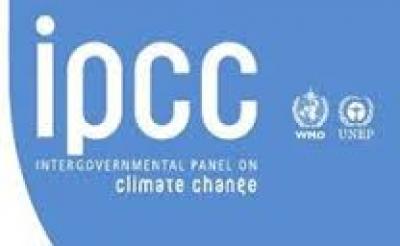Climate Change 2022: Impacts, Adaptation and Vulnerability - Working Group II Contribution to the Sixth Assessment Report of the Intergovernmental Panel on Climate Change

Figure SPM.1 in IPCC, 2022: Summary for Policymakers
Posted by
CAKE TeamAbstract
The Working Group II contribution to the IPCC Sixth Assessment Report assesses the impacts of climate change, looking at ecosystems, biodiversity, and human communities at global and regional levels. It also reviews vulnerabilities and the capacities and limits of the natural world and human societies to adapt to climate change.
It builds upon the Working Group II contribution to the IPCC’s Fifth Assessment Report, the three Special Reports of the Sixth Assessment cycle: ‘Global Warming of 1.5°C. An IPCC Special Report on the impacts of global warming of 1.5°C above pre-industrial levels and related global greenhouse gas emission pathways, in the context of strengthening the global response to the threat of climate change, sustainable development, and efforts to eradicate poverty (SR1.5)’; ‘Climate Change and Land: An IPCC Special Report on climate change, desertification, land degradation, sustainable land management, food security, and greenhouse gas fluxes in terrestrial ecosystems (SRCCL)’; ‘IPCC Special Report on the Ocean and Cryosphere in a Changing Climate (SROCC)’, and the Working Group I contribution to the IPCC Sixth Assessment Report.
The report recognizes the interactions of climate, ecosystems and biodiversity, and human societies, and integrates knowledge more strongly across the natural, ecological, social and economic sciences than earlier IPCC assessments. The assessment of climate change impacts and risks as well as adaptation is set against concurrently unfolding non-climatic global trends e.g., biodiversity loss, overall unsustainable consumption of natural resources, land and ecosystem degradation, rapid urbanisation, human demographic shifts, social and economic inequalities and a pandemic.
Working Group II introduces several new components in its latest report: These include the novel cross-chapter papers which provide focused assessments and updates from the special reports and include coverage of topics such as biodiversity hotspots, cities and settlements by the sea, deserts and desertification, mountains, tropical forests as well as the Mediterranean and polar regions. Another new component is an atlas that presents data and findings on observed climate change impacts and projected risks from global to regional scales, thus offering even more insights for decision makers. The Working Group II Report is based on the published scientific and technical literature accepted for publication by 1 September 2021.
Scope of the Report:
During the process of scoping and approving the outline of its Sixth Assessment Report, the IPCC focussed on those aspects of the current knowledge of climate change that were judged to be most relevant to policymakers. In this report, Working Group II examines the impacts of climate change on nature and people around the globe. It explores future impacts at different levels of warming and the resulting risks, and offers options to strengthen nature’s and society’s resilience to ongoing climate change, to fight hunger, poverty, and inequality and keep Earth a place worth living on – for current as well as for future generations.
Citation
IPCC, 2022: Climate Change 2022: Impacts, Adaptation and Vulnerability. Contribution of Working Group II to the Sixth Assessment Report of the Intergovernmental Panel on Climate Change [H.-O. Pörtner, D.C. Roberts, M. Tignor, E.S. Poloczanska, K. Mintenbeck, A. Alegría, M. Craig, S. Langsdorf, S. Löschke, V. Möller, A. Okem, B. Rama (eds.)]. Cambridge University Press. Cambridge University Press, Cambridge, UK and New York, NY, USA, 3056 pp., doi:10.1017/9781009325844.
